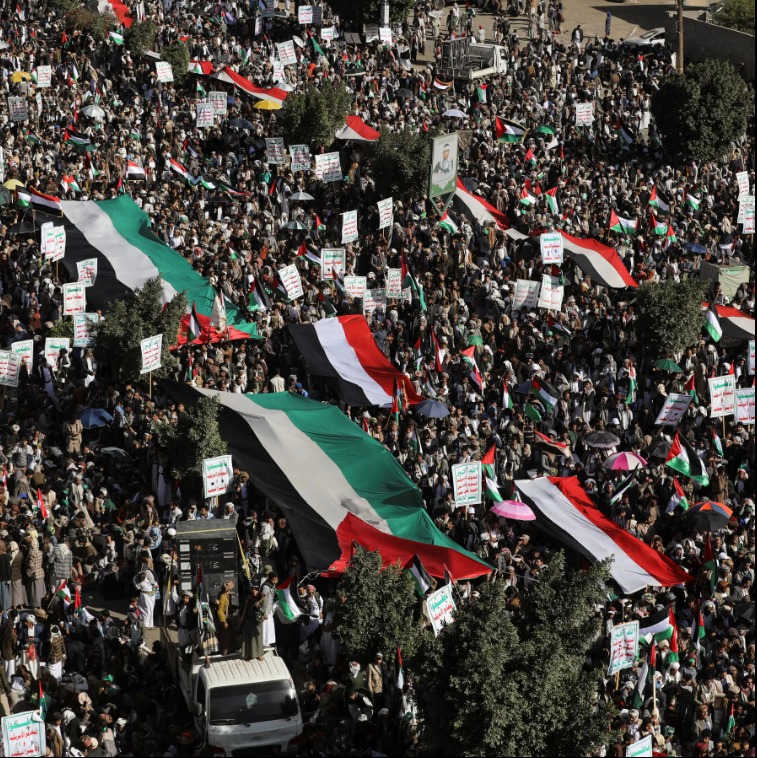“And what is it with you? You do not fight in the cause of Allah and for oppressed men, women, and children who cry out, ‘Our Lord! Deliver us from this land of oppressors! Appoint for us a savior; appoint for us a helper—all by Your grace.'” (Quran 4:75)
This particular verse from the Holy Quran resonates perfectly in the context of Gaza, a place which is enduring immense suffering, and consistent oppression from Israel. The crisis in Gaza demands not only our empathy or sympathy but also active engagement and help, which transcends religious, ethnic, and national boundaries.
Humanitarian Emergency and Individual Suffering
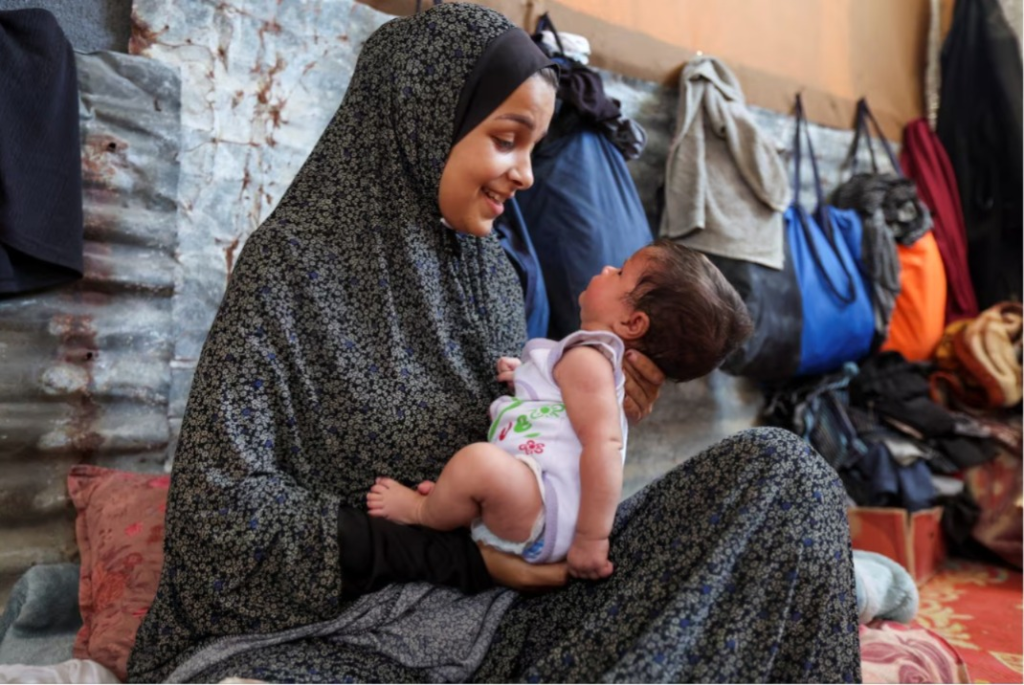
Gaza, one of the most densely populated areas globally, has faced repeated humanitarian crises. According to Amnesty International, actions by Israel since October 2023 are acts of genocide. Infrastructure which is crucial, and form the basis for sustaining life, which includes hospitals, schools, and residential buildings, has been deliberately targeted, leading to mass casualties and overwhelming psychological and sociological traumas.
Individual stories that are coming out of Gaza highlight psychological suffering of individuals. Survivors experience trauma after losing their loved ones and communities which they have spent long time with. Finding them under the rubbles is what make them traumatized. Palestinian journalist Wael al-Dahdouh described losing family members in an Israeli strike as emotionally catastrophic, stating, “It was as if I had been poisoned when I left Gaza.” Should not Gaza then matter to all of us?
Social and Communal Impacts
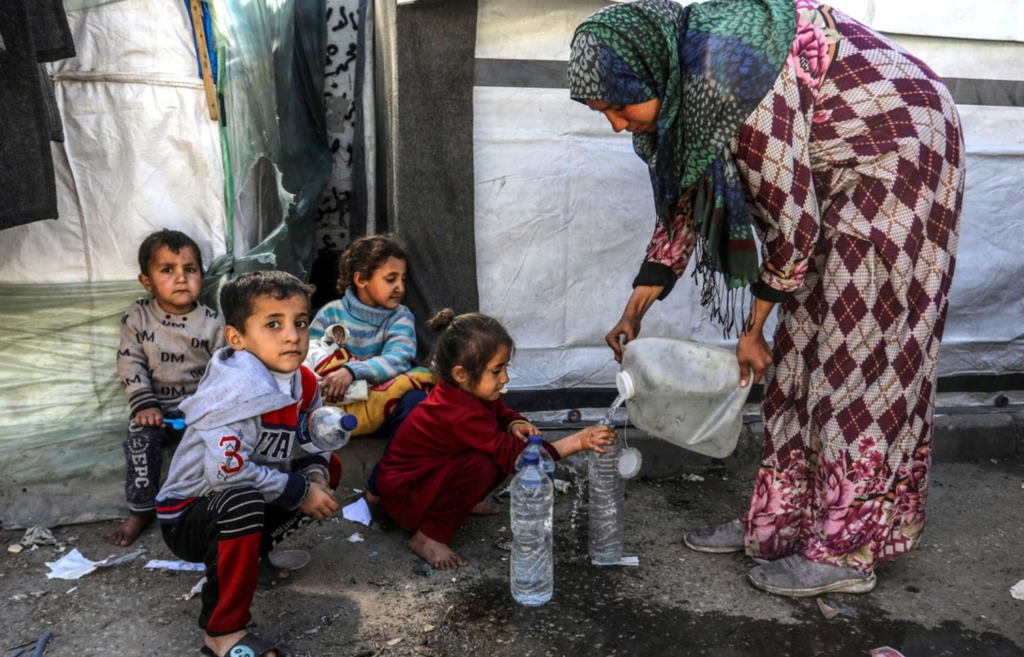
Socially, the community fabric of Gaza has been systematically and strategically disrupted. Consistent bombarding of residential areas, hospitals, schools, universities have caused massive displacement and has destroyed familial ties and community support structures. Over one million Gazans have been forcibly displaced from their original place of living, and are facing starvation and inadequate access to basic needs.
Cultural heritage sites have been deliberately targeted which has threatened Palestinian identity and history. Even the facilities like Internet that is a core tool to communication has been cut off recently in major areas of Gaza.
It is hence imperative to promote Palestine solidarity to preserve the cultural and social integrity of Gazaʼs communities. This solidarity transcends humanitarian aid. It necessitates advocacy for the right to exist, preserving cultural heritage, and restoring community networks.
Political Dimensions and International Response
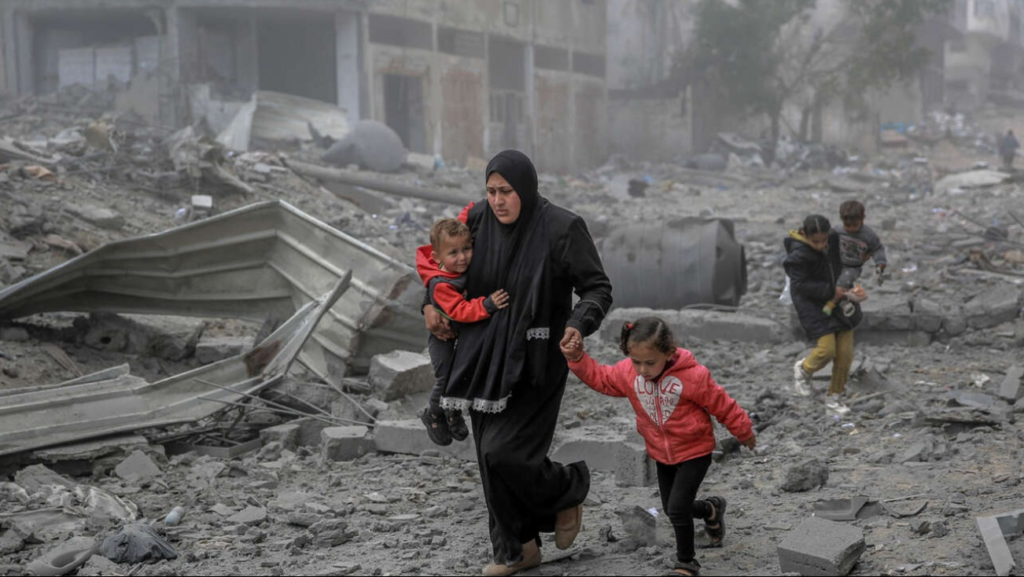
Politically, Gaza is symbolizing the struggle against occupation and injustice worldwide. The international response has varied with important global solidarity which emerges from citizens and organizations that demand accountability of the oppression. Thousands have marched from Rome to Dhaka, and are calling for immediate ceasefires and an end to hostilities.
Amnesty International and other human rights organizations have explicitly labeled Israelʼs actions as genocidal, and are urging international judicial bodies like the International Criminal Court (ICC) to intervene.
Yet, governmental responses remain inconsistent. While some nations have called for immediate humanitarian interventions and ceasefires, others continue to supply arms, increasing the crisis, and in short adding fuel to the fire. It is crucial that global citizens hold their governments accountable, put social pressure on their governments demanding policy shifts towards genuine humanitarian support and justice.
Moral and Psychological Imperative
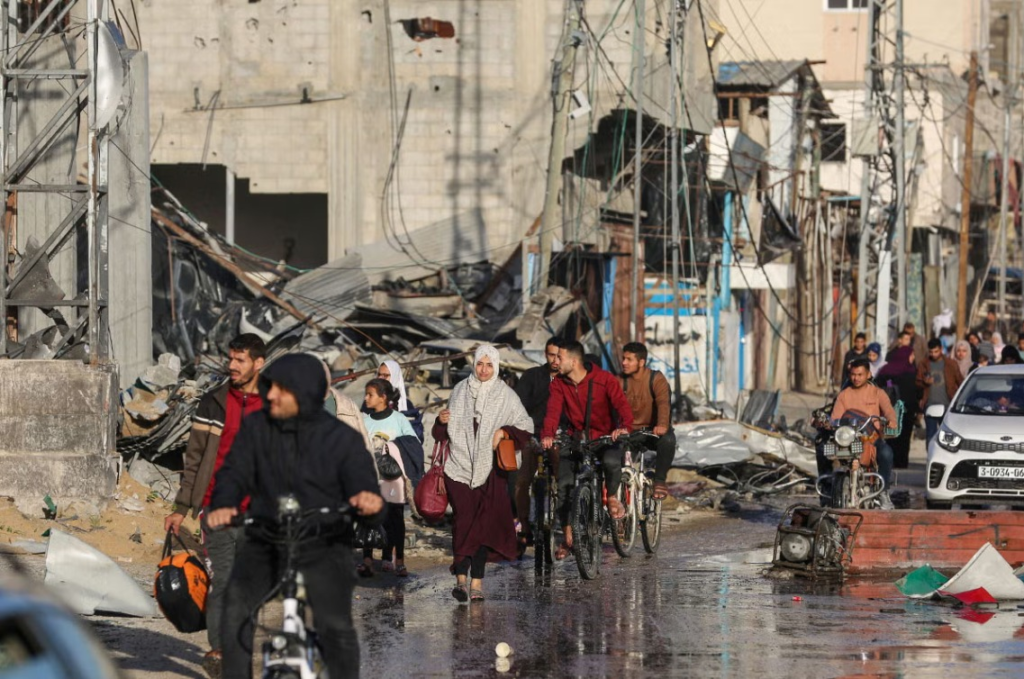
The verse from Surah Nisa – 75 reminds individuals, communities and especially Muslims of their moral responsibility to stand against oppression anywhere in the world. Being silent observers or spectators in the face of humanitarian crises like Gazaʼs contradicts principles of global justice as well as the philosophy of Islam.
Mere empathy does not solve the hunger for freedom of Palestinian People. International human rights activist Noam Chomsky highlights that silence in the face of such atrocities equates to complicity, which emphasizes our duty to speak and act decisively.
Communal Solidarity
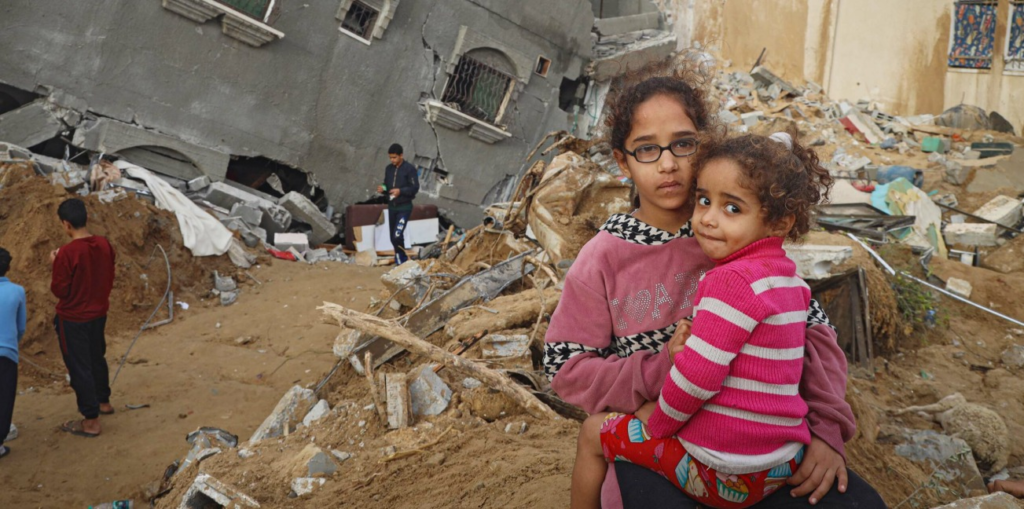
We have to understand our shared vulnerability and collective strength. Solidarity of Palestine is enriched in this concept. Islam emphasizes the concept of the Ummah, and the famous hadith of prophet Muhammad (P.B.U.H) says that “You see the believers as regards their being merciful among themselves and showing love among themselves and being kind, resembling one body, so that, if any part of the body is not well then the whole body shares the sleeplessness (insomnia) and fever with it.” the global Muslim community, which obligates believers to support the oppressed regardless of geographic boundaries.
Such solidarity unifies diverse communities around universal values of justice and compassion. Is it not then our individual, communal, moral, political duty to take Gaza as part of our body?
Political Accountability and Global Justice
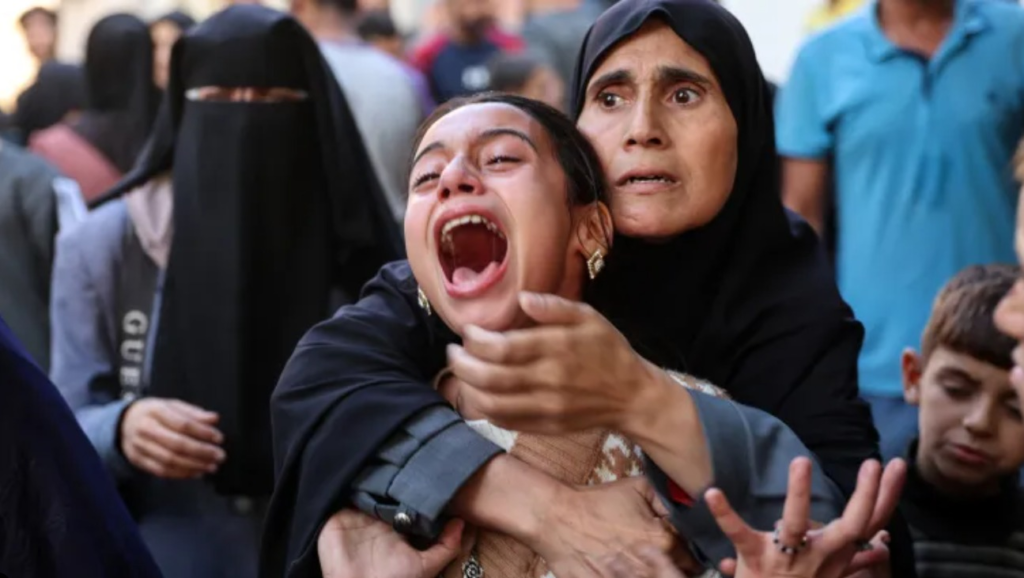
The crisis in Gaza highlight global double standards and the need of political accountability along with the implementation of law. Advocacy for Gaza should pressurize local governments to international bodies and governments to enforce international law consistently and with transparency. Global movements that include widespread boycotts, and sanctions indicate the power of unified action to hold perpetrators accountable and push for meaningful policy changes.
Stability and Future Social Justice
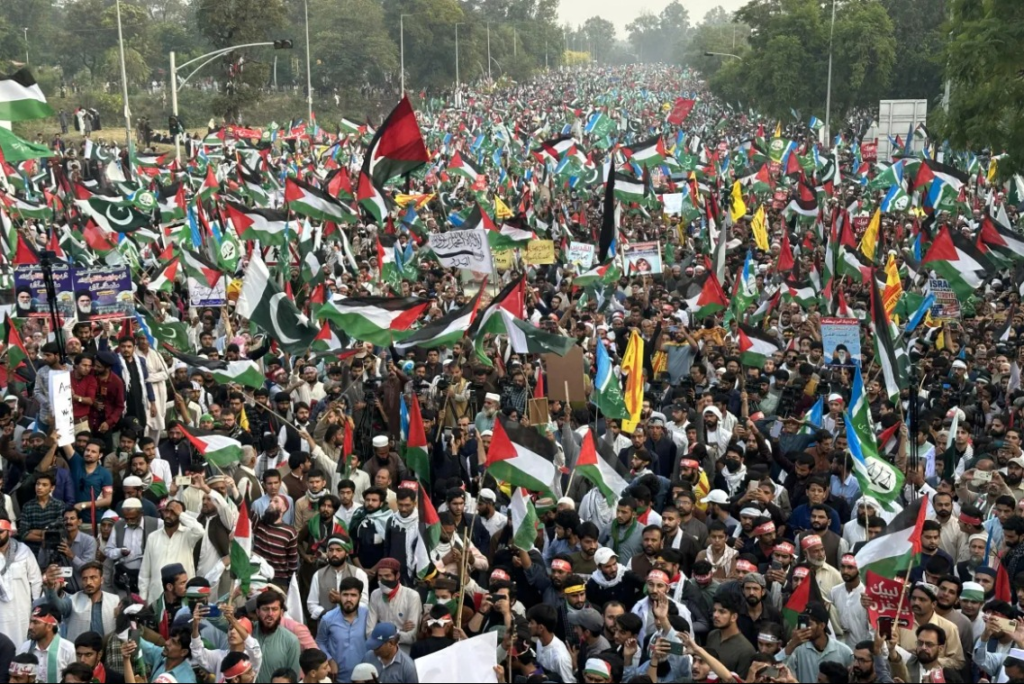
The cause of Gaza should be addressed proactively to prevent further cycles of violence and extremism. Research by international peace institutes indicate unresolved grievances and ongoing oppression fuel the actions radicalization. It also fuels desensitization to the issue. Hence, securing justice and dignity for Palestinians is necessary not only morally but also for broader regional and global stability. Investing in peaceful resolution and reconstruction efforts, led and defined by the people of Palestine, is critical to stability.
Recommendations and Call to Action

On an individual level, awareness for Gaza should be raised through personal networks, social media, and active engagement is required, and critical. Donations to credible humanitarian organizations and supporting mental health initiatives for Gazan communities can make immediate differences. Individuals must educate themselves and others to counter online misinformation to counter biased narratives. Different individuals with social influences should deliver different aspects of Gaza issue on their networks. Locals should pressurize influencers to talk about Gaza on their social networks.
On a community level, organizing awareness events, demonstrations, and educational forums can raise awareness. Local communities should be encouraged to pass resolutions demanding ceasefires and humanitarian aid which indicates collective power. Schools, universities, and religious institutions can play critical roles by integrating education on Palestinian issues into curricula and community programs.
At an international level, citizens must advocate for responsible governmental action. Governments should be pressurized to halt arms transfers, support ICC investigations, and adhere strictly to international humanitarian laws that constitutes meaningful international response. Global advocacy should also push for the lifting of blockades, unrestricted humanitarian access, and full accountability for violations of human rights.
Conclusion

In conclusion, Gaza should matter to everyone, guided by the timeless Quranic call to resist oppression and deliver justice. The plight of Gazans is not isolated; it reflects universal struggles against injustice and oppression. As global citizens, our action, and advocacy can collectively amplify their cries for help, fulfilling the Quranic imperative to actively support those oppressed. Gazaʼs struggle is our struggle, their resilience is our resilience, and their cry is our cry. Gaza should matter to everyone, because Gaza is us, and we are Gaza.
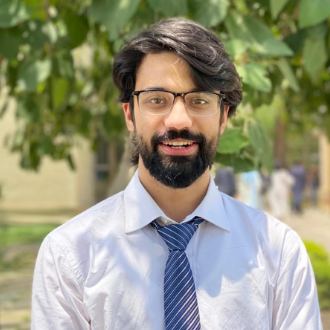
About Author:
Abdullah Farooq
Gaza Aid Project
Air University

